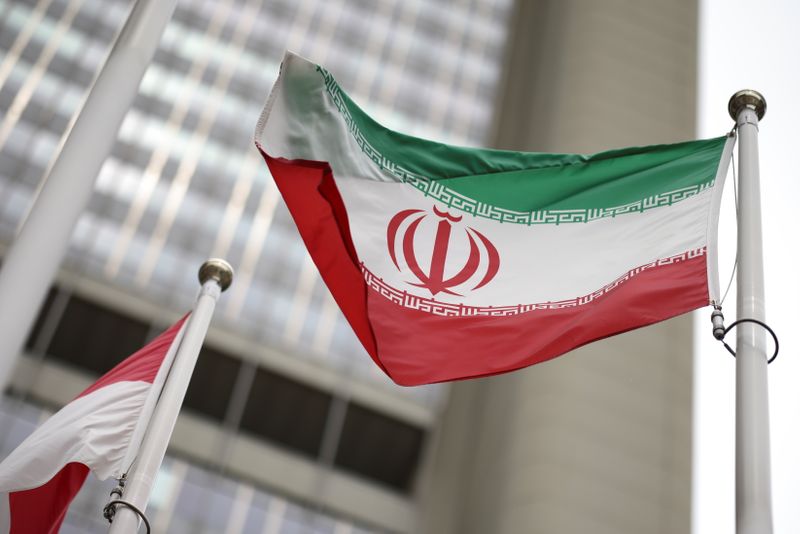DUBAI (Reuters) -Iranian government spokesman Ali Rabiei said on Tuesday he was optimistic over Tehran reaching an agreement soon at talks with world powers to revive a 2015 nuclear deal, although Iran's top negotiator cautioned that serious issues remained.
Iran and global powers have negotiated in Vienna since April to work out steps that Tehran and Washington must take on sanctions and nuclear activities to return to full compliance with Iran's 2015 nuclear pact with world powers.
"General agreements have been reached on major disputes. On the lifting of sanctions, the remaining cases are very minor, and given the negotiation process, we are optimistic about resolving the remaining minor and practical cases," Rabiei told a news conference streamed on a state-run website.
Iran's top negotiator, Abbas Araqchi, however, struck a more cautious stance when speaking after the start of the latest round of talks on Tuesday.
"Many delegations hope this will be the last round of talks... but caution must be exercised," Araqchi said after the meeting of the remaining parties to the deal - Iran, Russia, China, France, Britain and Germany.
"Issues which remain for finalisation and decision-making are among the important, but their number has decreased," he told state TV.
On his way to the talks, U.S. Special Envoy for Iran Robert Malley said on Twitter: "The latest round of talks was constructive and saw meaningful progress. But much work still needs to be done."
Washington withdrew from the deal in 2018, prompting Iran tosteadily overstep the accord’s limits on its nuclear programmedesigned to make it harder to develop an atomic bomb - anambition Tehran denies.
Last week, Iranian President Hassan Rouhani said sanctions on oil, shipping, petrochemicals, insurance and the central bank had been addressed in the talks, though European diplomats said success was not guaranteed and very difficult issues remained.

U.S. sanctions are likely to be a major issue in campaigning for Iran's presidential election on June 18.
State TV reported on Tuesday that Iran's election watchdog had approved the candidacy of just seven hopefuls, barring most prominent moderate rivals of hardline judiciary chief Ebrahim Raisi in the election. Hardliners say Washington cannot be trusted to respect any nuclear accord.